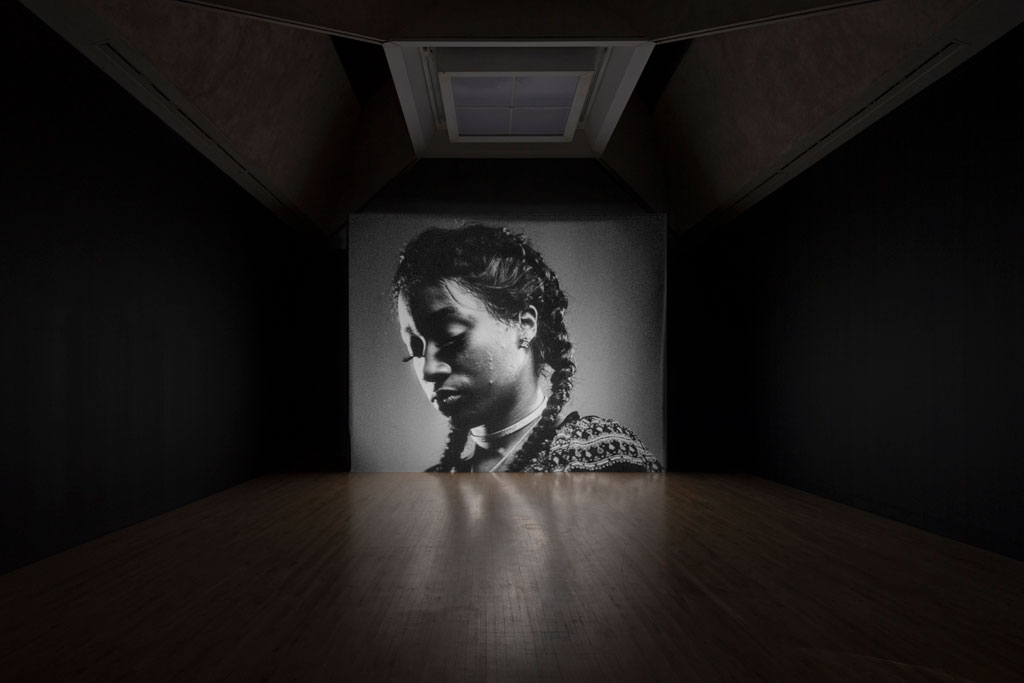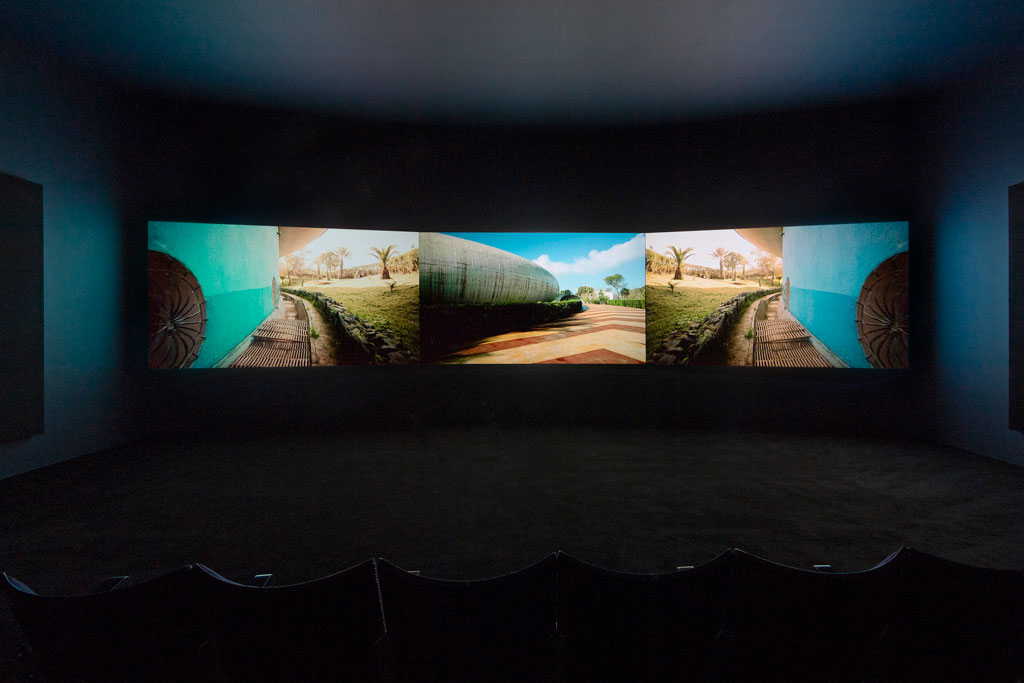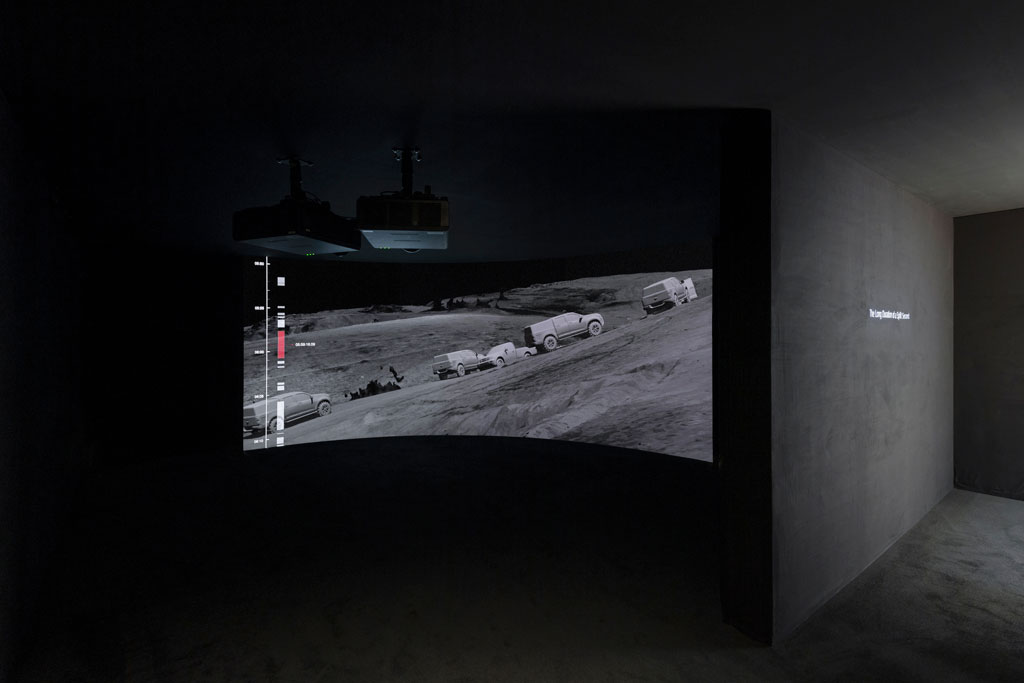Caroline Phillips at The Turner Prize 2018
This year involves serious screen time, says Caroline Phillips
This post may contain affiliate links. Learn more
If you’re hoping to see a little provocative sculpture, painting or even something like a reinvented, unmade bed at the Turner Prize, you’re in for a disappointment. Unless you’re keen just to view four videos, that is. Because that’s what it is this year. Just film.
Caroline Phillips at The Turner Prize 2018 
This year’s prize contenders are also heavy with worthiness, earnestness and political intent. Or as Alex Farquharson, Director of Tate Britain, put it: ‘The artists shortlisted for this year’s Turner Prize are tackling some of today’s most important issues, from queer identity, human-rights abuses and police brutality to post-colonial migration and the legacy of liberal movements.’
So to the moving images. One is by Forensic Architecture —a collective of architects, film-makers, archaeologists, investigative journalists, lawyers and scientists. It uses various disciplines (video, photographs, scale models, text to reproductions) to investigate allegations of human rights abuses involving state and corporate violence. For the Turner Prize, it documents the events of 18 January 2017 when an attempt was made by the police to clear a Bedouin village (in the Negev desert in the southern region of Israel), and which resulted in the death of two people.
Next there’s Charlotte Prodger who presents Bridgit, her most autobiographical work yet, and one filmed on an iPhone over the course of a year. It’s comprises shots of inside her home and ones of the Scottish countryside and waterways: intercutting Neolithic stones with her screensaver and views from the back of a boat; some of it bleakly beautiful and other shots too self-indulgently lingering. The sounds of her environment are overlaid with narration read by Prodger and her friends, including extracts from her diaries and from books written by figures from queer history —forming the context from which her queer identity was forged.
Luke Willis Thompson presents a trilogy of works on 35mm film: Cemetary of Uniforms and Liveries, autoportrait and _Human. He works across film, performance and installation. His films examine the relationship between a person and that person’s representation. He shoots a film of a tiny model house which, I realised with sudden shock, is made from human skin (which brought to my mind the Nazis’ re-cycling of human hair). The house was made by the artist Donald Rodney from his skin whilst he was dying from sickle-cell anaemia.
Then there’s Naeem Mohaiemen. He presents two films — their running time totalling over two hours. One of these, Two Meetings and a Funeral, is a documentary shown on three screens and addressing the failure of pan-Africanism (centring on the power struggle between the Non-Aligned Movement and the Organisation of Islamic Cooperation in the 1970s). The other, Tripoli Cancelled (a fiction) follows a man living alone in an abandoned airport for a decade. Mohaiemen’s films and installations weave together archives, photographs and interviews and explore ideas of hope and loneliness, focusing on countries freed from colonial rule.
Reader, I’m sorry. Mohaiemen, I’m very sorry. It’s not that I’m not interested —I’ve spent days reporting on refugee camps and have been to Africa more times than I can count. I just didn’t have the spare time —or will —to watch much of the film on the (here we go again…) Non-Aligned Movement and the Organisation of Islamic Cooperation, which is more than an hour long.
So it’s an (unfair) toss up between Prodger and Forensic Architecture for me. (William Hill are you paying attention? Readers, the £25,000 winner will be named on 4 December at a ceremony broadcast live on the BBC.) On reflection, the latter’s film is, to me, the most powerful. It’s like a jerky rendition of television news, with the time ticking away to the left of the screen, and everything seemingly delivered by eye witnesses under fire in the dark of the night-time raid. It conveys in adrenaline-packed scenes with rifle flashes and shouts, the frightening chaos of the event and the sudden realisation that two people have died.
It could be said that the works (or as much as I saw of them) are too worthy, too self-indulgent, too high-concept. Certainly the exhibition is heavy going —Mohaiemen’s work entitled Volume Eleven (flaw in the algorithm of cosmopolitanism) says it all —and it might have helped to have had it all leavened with some witty or uplifting pieces or at least something tonally different. But these are bleak and challenging times, and so too politically…and not just in America and Europe. These artists are reflecting that. Gone are the days of pickled sheep then.
Oh, and did I tell you that you’ll need to set aside five hours for your visit if you’re going to watch everything?
Tate Britain. (020 7887 8888) Turner Prize 2018. 26 Sept 2018 to 6 January 2019



